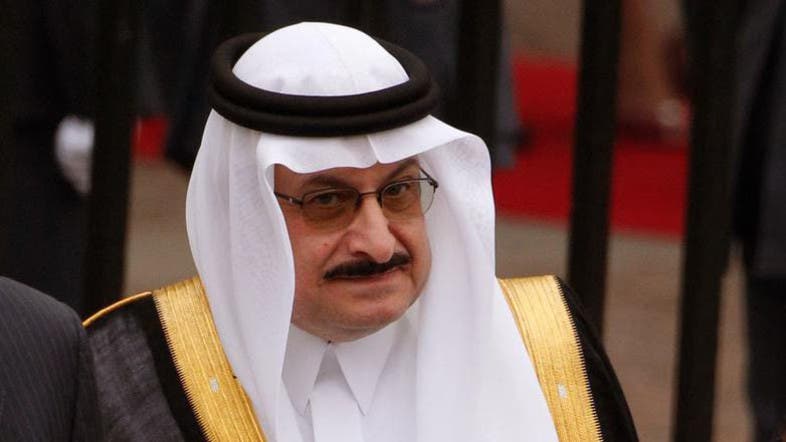‘Saudi Arabia will go it alone,’ says diplomat

Prince Mohammed bin Nawaf bin Abdulaziz warns of Saudia Arabia’s
concerns over Iran’s nuclear programme. (File photo: Reuters)
By Staff writer
| Al Arabiya News
Wednesday, 18 December 2013
A top Saudi diplomat said on Tuesday the Gulf kingdom was prepared
to act on its own to safeguard security in the region, describing the
West’s policies on Iran and Syria as a “dangerous gamble.”Wednesday, 18 December 2013
“We believe that many of the West’s policies on both Iran and Syria risk the stability and security of the Middle East,” the Saudi ambassador to Britain, Prince Mohammed bin Nawaf bin Abdulaziz, wrote in a commentary in the New York Times.
“This is a dangerous gamble, about which we cannot remain silent, and will not stand idly by,” he added.
On the topic of Iran’s backing for Syrian President Bashar al-Assad’s regime, Prince Abdulaziz wrote: “rather than challenging the Syrian and Iranian governments, some of our Western partners have refused to take much-needed action against them.
“The West has allowed one regime to survive and the other to continue its program for uranium enrichment, with all the consequent dangers of weaponization,” he added.
Saudi leaders have recently voiced their criticism of Washington’s decision to pull back from military action in Syria earlier this year. Following that, diplomatic talks with Iran over its controversial nuclear program have also sparked tensions.
Diplomatic talks with Iran may “dilute” the West’s will to confront both Damascus and Tehran, he said.
“What price is ‘peace’ though, when it is made with such regimes?”
The Gulf monarchy had “global responsibilities,” both political and economic, and he said: “We will act to fulfill these responsibilities, with or without the support of our Western partners.”
In a thinly veiled jab at U.S. President Barack Obama, the Saudi ambassador said that “for all their talk of ‘red lines,’ when it counted, our partners have seemed all too ready to concede our safety and risk our region’s stability.”
Obama had used the term “red lines” to warn Syria’s regime against using chemical weapons.
The diplomat also slammed the West for its reluctance to offer decisive help to Syrian rebels, vowing to continue support for the Free Syrian Army and the “Syrian opposition.”
Acknowledging the threat of al-Qaeda-linked groups in Syria, he argued the best way to counter the rise of extremists among the rebels was to support the “champions of moderation.”
His commentary comes after a prominent Saudi prince stated that the kingdom was blindsided over talks on Iran’s nuclear deal and criticized U.S. inaction in Syria in an interview with the New York Times published Sunday.
Speaking on the sidelines of the World Policy Conference in Monaco, Prince Turki al-Faisal, the brother of Foreign Minister Saud al-Faisal, said that his country and other Gulf states were astonished by secret American-Iranian dealings that led to last month’s landmark nuclear deal between Iran and other world powers, according to the newspaper.
Prince Turki said that the temporary nuclear deal with Iran would not adequately prevent Iran from developing atomic weapons.
“It’s important for us to sit down at the same table,” he said. “We have been absent.”
The royal called the failure of the U.S. and U.N. to work towards resolving Syria’s civil conflict tantamount to “criminal negligence.”
Non-lethal aid to the rebel Free Syrian Army that was last week suspended by the U.S. State Department after stockpiles were seized by al-Qaeda-linked militants was “irrelevant” in the first place, said Prince Turki.
(With AFP)
No comments:
Post a Comment